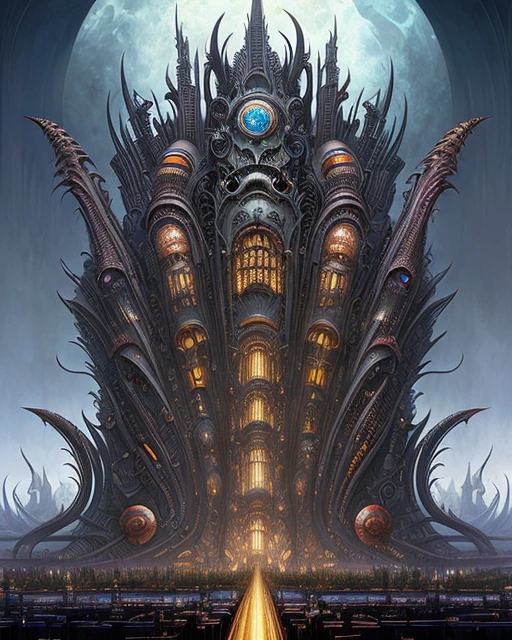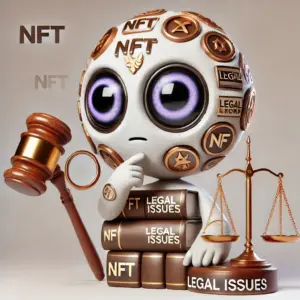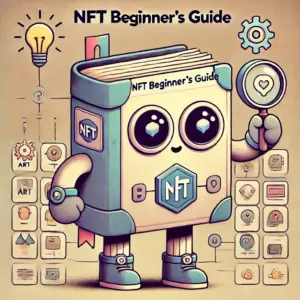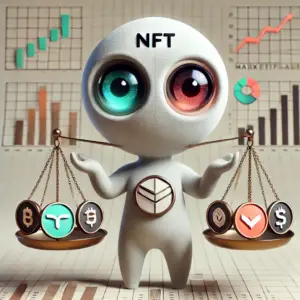From digital art and collectibles to gaming and music, NFTs have opened up a world of possibilities, empowering creators to monetize their work and offering consumers unique ownership experiences. But what does the future hold for these groundbreaking tokens?
NFTs: A Brief Overview
NFTs are digital assets stored on a blockchain, a distributed ledger technology that provides a secure and transparent record of ownership. Unlike fungible tokens like cryptocurrency, which are interchangeable, each NFT is unique and cannot be replicated. This unique characteristic has made NFTs particularly appealing for representing digital collectibles, such as artwork, music, and in-game items.
The Rise of NFTs: A 2021 Boom
The year 2021 witnessed a meteoric rise in the popularity of NFTs. The sale of Beeple’s digital artwork, “Everydays: The First 5000 Days,” for a staggering $69.3 million at Christie’s auction ignited a frenzy, capturing the attention of the mainstream media and fueling a surge in NFT adoption. Celebrities, brands, and investors alike rushed to enter the NFT space, eager to capitalize on its potential.
The Market Cools Down: A Shift in Focus
While the initial hype surrounding NFTs led to a surge in trading volume, the market experienced a significant downturn in 2022. The average price of an NFT fell by over 90%, and trading volume declined. This cooling-off period, however, was not necessarily a sign of failure but rather a necessary correction as the market matured and focused on more sustainable and value-driven projects.
NFTs: Beyond the Hype, a Promising Future
Despite the market correction, the underlying technology and potential of NFTs remain strong. Several factors suggest that NFTs are here to stay and could have a profound impact on various industries:
- Increased Adoption and Integration: More and more businesses are exploring the use of NFTs, recognizing their potential to revolutionize their operations and engage with customers.
- Utility-Driven Applications: NFTs are moving beyond mere collectibles and gaining utility in various applications, such as access control, ticketing, and loyalty programs.
- Cross-Industry Integration: NFTs are breaking down silos and connecting different industries, enabling seamless interactions and value exchange.
The Next Frontier: NFTs in Action
NFTs have the potential to transform various industries, offering innovative solutions and creating new opportunities. Let’s explore some of the promising areas where NFTs are expected to make a significant impact:
- Digital Art and Collectibles: NFTs are empowering artists to retain control over their work, provide collectors with verifiable ownership, and enable new forms of monetization.
- Gaming: NFTs are revolutionizing in-game economies, enabling players to own and trade virtual assets, providing unique experiences, and fostering deeper community engagement.
- Music and Entertainment: NFTs are offering musicians and artists new ways to connect with fans, provide exclusive content, and monetize their work without intermediaries.
- Brands and Loyalty Programs: NFTs are enabling brands to create personalized loyalty programs, reward loyal customers, and forge stronger brand-consumer relationships.
- Real Estate and Property Ownership: NFTs are opening up new possibilities for fractional ownership of real estate, providing investors with access to a wider range of properties and enabling more efficient transactions.
The Road Ahead: Challenges and Opportunities
While the future of NFTs is bright, there are also challenges that need to be addressed to ensure their sustainable growth and widespread adoption. These challenges include:
- Scalability and Environmental Impact: The energy consumption associated with some blockchain networks is a concern, and scaling solutions are needed to handle the increasing demand for NFT transactions.
- Regulation and Legal Framework: Clear regulatory guidelines are needed to provide legal certainty for NFTs and protect consumers from fraud and scams.
- User Experience and Adoption: Making NFTs easier to use and more accessible to mainstream consumers is crucial for wider adoption.
Conclusion: Embracing the Future of Digital Ownership
NFTs represent a significant paradigm shift in the way we interact with digital assets. They offer a unique opportunity to empower creators, provide consumers with verifiable ownership, and create new forms of value exchange. As the technology matures and challenges are addressed, NFTs are poised to play an increasingly important role in shaping the future of the digital economy.






